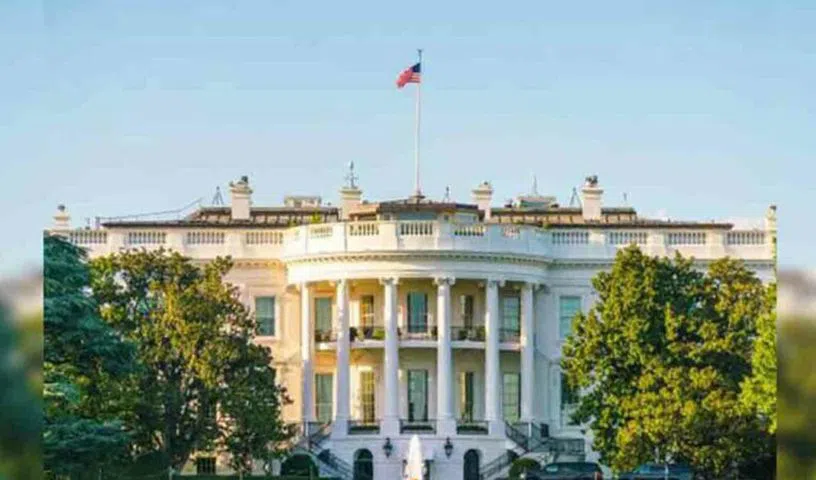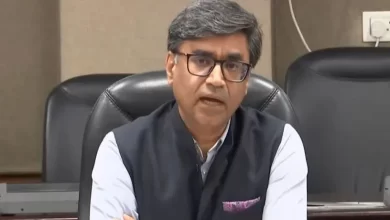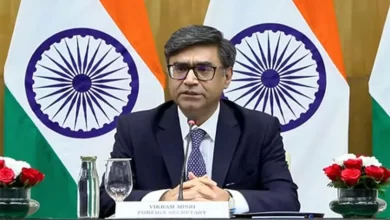
Accuses Russia of using state media to spread disinformation; Biden administration books 2 employees of RT, seizes websites used by Kremlin
Washington: The Biden administration announced wide-ranging actions on Wednesday meant to call out Russian influence in the upcoming US presidential election, unsealing criminal charges against two employees of a Russian state-run media company and seizing websites used by the Kremlin to spread disinformation.
The measures, which in addition to indictments also included sanctions and visa restrictions, represented a US government effort just weeks before the November election to disrupt a persistent threat from Russia that American officials have long warned has the potential to sow discord and create confusion among voters.
Washington has said that Moscow, which intelligence officials have said has a preference for Republican Donald Trump, remains the primary threat to elections even as the FBI continues to investigate a hack by Iran this year that targeted the presidential campaigns of both political parties.
“The Justice Department’s message is clear: We will have no tolerance for attempts by authoritarian regimes to exploit our democratic systems of government,” Attorney General Merrick Garland said.
One criminal case disclosed by the Justice Department accuses two employees of RT, a Russian state media company, of covertly funding a Tennessee-based content creation company with nearly $10 million to publish English-language videos on platforms including TikTok and YouTube with messages in favour of the Russia government’s interests and agenda, including about the war in Ukraine. The videos were seen millions of times.
The Justice Department says the company, which it did not identify, did not disclose that it was funded by RT and did not register as required by law as an agent of a foreign principal.
In the other action, officials announced the seizure of 32 internet domains that were used by the Kremlin to spread Russian propaganda and weaken global support for Ukraine. The websites were designed to look like authentic news sites but were actually fake.
Though the Justice Department did not identify which candidate in particular the campaign was meant to boost, internal strategy notes released Wednesday make clear that Trump and his campaign were the intended beneficiaries.
Intelligence agencies have previously charged that Russia was using disinformation to try to interfere in the election. The new steps show the depth of U.S. concerns and signal legal actions against those suspected of being involved.
“Today’s announcement highlights the lengths some foreign governments go to undermine American democratic institutions,” the State Department said. “But these foreign governments should also know that we will not tolerate foreign malign actors intentionally interfering and undermining free and fair elections.”
In a speech last month, Deputy Attorney General Lisa Monaco said Russia remained the biggest threat to election integrity, accusing Russian President Vladimir Putin and his proxies of using increasingly sophisticated techniques in their interference operations” including by “targeting specific voter demographics and swing-state voters to in an effort to manipulate presidential and congressional election outcomes.”
“They’re intent on co-opting unwitting Americans on social media to push narratives advancing Russian interests,” she added.
She struck a similar note Thursday, saying at an Aspen Institute event in Washington that the foreign influence threat is more diverse and aggressive than in past years.
“More diverse and aggressive because they involve more actors from more countries than we have ever seen before, operating in a more polarized world than we have ever seen before, all fueled by more technology and accelerated by technology, like AI, and that is what we have exposed in the law enforcement actions we took today,” she said.
Much of the concern around Russia centers on cyberattacks and disinformation campaigns designed to influence the November vote.
The tactics include using state media like RT to advance anti-U.S. messages and content, as well as networks of fake websites and social media accounts that amplify the claims and inject them into Americans’ online conversations.
Typically, these networks seize on polarizing political topics such as immigration, crime or the war in Gaza.
In many cases, Americans may have no idea that the content they see online either originated or was amplified by the Kremlin.
“Russia is taking a whole of government approach to influence the election, including the presidential race,” an official from the Office of the Director of National Intelligence said this summer during a briefing. The official spoke on condition of anonymity under rules worked out with that office.
Groups linked to the Kremlin are increasingly hiring marketing and communications firms within Russia to outsource some of the work of creating digital propaganda while also covering their tracks, the officials said during the briefing with reporters.
Two such firms were the subject of new US sanctions announced in March. Authorities say the two Russian companies created fake websites and social media profiles to spread Kremlin disinformation.
The ultimate goal, however, is to get Americans to spread Russian disinformation without questioning its origin. People are far more likely to trust and repost information that they believe is coming from a domestic source, officials said.
Fake websites designed to mimic US news outlets and AI-generated social media profiles are just two methods.
Messages left with the Russian Embassy were not immediately returned.







